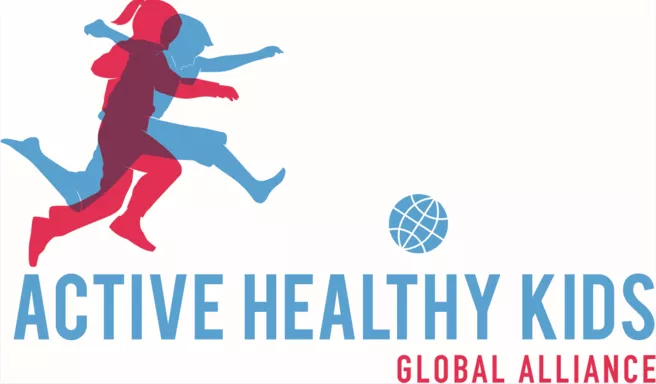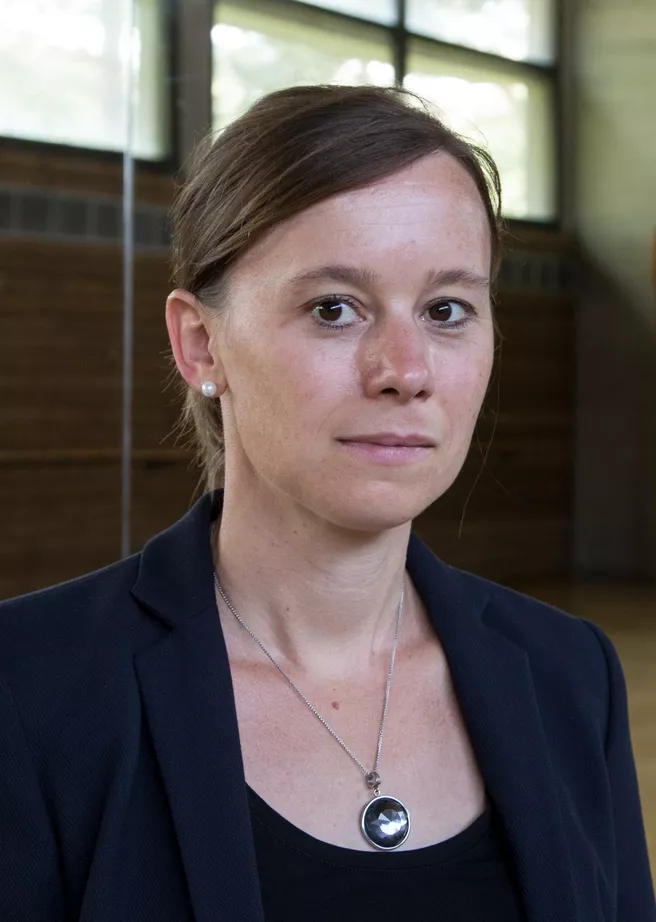Children and young people in Germany sit too much and move too little. This is the result of the Physical Activity Report Card 2022, which was issued for the second time after 2018. The results are based on a worldwide survey by the Active Healthy Kids Global Alliance, which examined the physical activity of children and young people in 57 countries. The initiative was launched in 2014 by Canadian scientists.
The German Physical Activity Report Card was created by the Active Healthy Kids Germany (AHKG) network, led by Prof. Dr. Yolanda Demetriou, head of the Assistant Professorshop of Educational Science in Sport and Health at the Technical University of Munich, and Prof. Dr. Anne Reimers of the Friedrich Alexander University of Erlangen-Nuremberg, with the support of the health insurance company vivida bkk and the foundation "Die Gesundarbeiter - Zukunftsverantwortung Gesundheit". In Germany, a total of 15 research institutions were involved; from the Department of Sport and Health Sciences, in addition to Prof. Demetriou, Prof. Dr. Karsten Köhler, head of the Assistant Professorship of Exercise, Nutrition and Health, and Dr. David Sturm from the Assistant Professorship of Educational Science in Sport and Health were also involved.
For the Physical Activity Report Card, scientific studies, national surveys, and reports from governmental and non-governmental organizations were evaluated to assess the physical activity and sedentary behavior of children and adolescents based on eleven categories using a school grading system. This year, a particular focus was on existing differences between boys and girls. In addition, effects of the Corona pandemic were taken into account in the evaluation.
Germany only received a grade of 4- in the "Physical activity" category. Only around one third of children (27 to 33 percent) achieve the physical activity recommendation of the World Health Organization (WHO). Boys tend to be somewhat more active than girls. Some children and young people in other countries are significantly more active. The best values worldwide are achieved by Slovenia and Finland, followed by Japan, South Africa and the USA. But many European countries such as Croatia, Spain and Slovakia also score better than Germany.
"Exercise is incredibly important for children in particular. If girls and boys do too little exercise as children, there is a high risk that they will do the same as adults. This in turn promotes the development of lifestyle diseases such as obesity, heart attacks and strokes. In Germany, physical inactivity is the fifth most common cause of death," warns project leader Prof. Demetriou.
"The results of the current movement testimony should wake us up," also emphasizes Roland Frimmersdorf, chairman of the foundation "Die Gesundarbeiter - Zukunftsverantwortung Gesundheit". "We must succeed in reaching young people in their living environment and supporting them to move more in everyday life. The earlier we awaken in them the joy of sports and exercise, the better," Frimmersdorf continued.
Children and young people from Germany fared only slightly better, with a score of 4+, in the area of "physical fitness". Particularly in strength and mobility, children and adolescents in Germany are at a below-average level in an international comparison. 38.2 percent of children and adolescents stated that their physical fitness had deteriorated in the Corona pandemic.
In addition, children and adolescents in Germany suffer from overweight and obesity. About nine to 20 percent have an elevated body mass index (BMI) and are thus overweight or obese. The proportion of boys who are obese is higher than that of girls. In particular, an increase in BMI values was observed during the Corona pandemic.
It is also striking that girls with a score of 4+ perform worse than boys (score 3) in the area of "non-organized sports and active play." Accordingly, the latter engage more frequently in non-organized sports such as soccer, basketball or playing outdoors. During the COVID-19 pandemic (in the second lockdown in spring 2021), active play declined significantly, whereas non-organized sports participation showed an increase.
"Compared to the first physical activity report card in 2018, we remained equally bad," study leader Prof. Demetriou concludes. "Compared to 2018, not much has changed, and the Corona pandemic has even exacerbated the situation. The situation is still precarious. We need to do more to get our children and young people moving!"
"In Germany, children and young people need to be encouraged and supported to develop a love of movement, in line with our motto 'Don't stay seated - get moving!' But the environment of children and young people should also be made even more movement-friendly," recommends Prof. Reimers.
Germany received better marks for the framework conditions offered by organized sports, schools, communities and the environment: 60 to 70 percent of children and adolescents regularly participate in sports in organizations such as a club. Particularly at primary school age, a large number of children are members of a sports club. During the Corona pandemic, however, sports participation in clubs declined significantly or even came to a complete standstill in some places due to the lockdowns.
In Germany, physical education is compulsory for all children and young people, and the majority of lessons are held. Structurally, almost all schools (97 percent) have a gym and 66 percent of schools have an exercise-friendly break yard. However, during the COVID-19 pandemic, physical education classes hardly took place and were sometimes banned. There are hardly any quality-assured online offerings or corresponding teaching concepts.
The "community and environment" area also scores well. Between 66 and 77 percent of the children and young people said that they could play outside free of obstacles, such as car traffic or major roads. For more than 80 percent of the children and young people, there is a sports field nearby. In addition, for 80 percent there is a park or green space close to home, and around 56 percent have a swimming pool at their place of residence.
In an international comparison of the 57 countries, Slovenia, Japan and the two Scandinavian countries Denmark and Finland score best with an overall grade of 2. Germany is more in the middle with a grade of 3, but ranks in the top third in the areas of sports, schools, community and environment. There is thus a clear contrast: while the external influencing factors and the environment are rated quite well, there are clear weaknesses in individual physical activity behavior.
In order to make the living environments even more conducive to physical activity, the study leaders of the 57 participating countries recommend, among other things, improving the opportunities for physical activity at school and increasing the number of hours of physical activity per week at school. Furthermore, access to public spaces, green areas, playgrounds or sports facilities should be expanded.
Active Healthy Kids Germany partners are scientists from the following institutions: Technical University of Munich, Friedrich-Alexander University Erlangen-Nuremberg, Leibniz Institute for Prevention Research and Epidemiology - BIPS/Bremen, University of Bayreuth, German Sports Youth, German Olympic Sports Confederation, University of Ulm, Weingarten University of Education, Robert Koch Institute/Berlin, Justus Liebig University Giessen, MSH Medical School Hamburg, Karlsruhe Institute of Technology, German Association of Physical Education Teachers; German Professional Academy of Sport and Health/Baunatal; University of Leipzig.
To the brochure of the Physical Activity Report Card 2022
To the worldwide survey „Global Matrix 4.0“
To the homepage of the foundation „Die Gesundarbeiter“
Contact:
Prof. Dr. Yolanda Demetriou
Assistant Professorship of Educational Science in Sport and Health
Georg-Brauchle-Ring 60/62
80992 München
phone: 089 289 24686
e-mail: yolanda.demetriou(at)tum.de
Text: Romy Schwaiger
Photos: Active Healthy Kids Global Alliance/private


